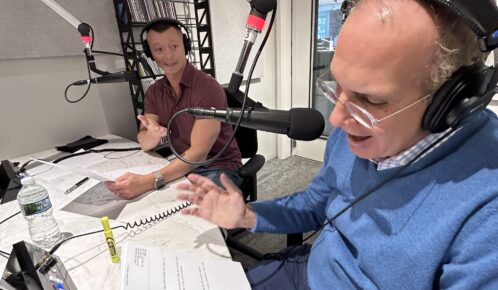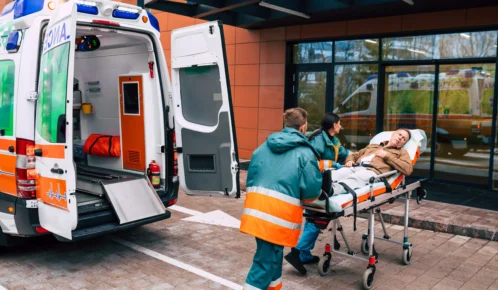A recent amendment to Illinois workers’ compensation rules makes it easier for essential workers to get workers compensation benefits if they are exposed to COVID-19 while performing their job. For help with your claim, contact a lawyer for COVID-19 exposure.
Table of Contents
Workers’ Comp Benefits for Illinois Essential Workers
On April 16, 2020, an emergency amendment to Illinois’ workers’ compensation rules took effect. The amendment provides help to essential workers exposed to COVID-19 by making it easier for them to obtain workers’ compensation benefits for COVID-19 related injuries.
The Illinois emergency amendment creates a rebuttable presumption that permits employers to rebut workers’ compensation claims under certain conditions. If employers choose to rebut workers comp benefits for workers, they must show:
- Proof that the workplace was following public health and safety guidelines at the time the worker contracted COVID-19
- Proof that CDC health and safety guidelines were in place and being followed at least two weeks prior to employee illness
- Proof that the employee was exposed to COVID-19 at a different location or from a different source
- Proof that the employee contracted COVID-19 outside the workplace
- Proof the employee was working from home for at least 14 days prior to filing of his/her workers’ compensation claim
In Illinois, all employers with more than one full-time employee or part-time employees are required by law to provide workers compensation insurance to workers. Employers who have questions and concerns about the rebuttable presumption conditions may consult with a Chicago workers compensation lawyer for legal advice on the Illinois emergency amendment.
In June 2020, House Bill 2455 was signed by Illinois Governor, J.B. Pritzker. The bill revises state code to expand unemployment benefits and enhance sick leave and sick pay for frontline workers who contract COVID-19. The bill also provides death benefits for first responders including police officers and firefighters who are infected with COVID-19 while on duty. However, contraction of COVID-19 must have occurred between March 9, 2020, (the first day of the governor’s mandated stay-at-home order) and December 31, 2020. Illinois law mandates that the date of COVID-19 diagnosis constitutes the date of viral contraction for all frontline and essential workers. A Chicago workers’ compensation lawyer who’s knowledgeable about the new bill can provide clarity to employers on entitlement for workers’ compensation benefits.
Frontline and Essential Workers
The recent emergency amendment and House Bill broadly covers individuals employed as first responders, including police officers and firefighters, and healthcare workers, including emergency medical technicians and paramedics.
Frontline Workers
Frontline workers are considered essential by the federal government to protect public health and safety. The federal government only recognizes six industries as frontline industries. These industries provide medical treatment and equipment, medical transportation, and essential goods and services to U.S. consumers. Frontline industries include:
- Healthcare – Healthcare workers employed in hospitals, clinics, outpatient surgery, and care centers, nursing homes, and psychiatric and substance abuse facilities are considered frontline workers in the highest risk group for COVID-19 exposure and illness.
- Public Transportation – Public transportation services provided by trains, subways, and buses are considered frontline industries. Workers in these industries have a high risk for exposure to COVID-19.
- Trucking/ Warehouse/ Postal Services – These industries are responsible for the storage, shipment, and delivery of essential supplies to American businesses and consumers. Workers in these industries make up a high percentage of job-related injury claims seen by Chicago workers compensation lawyers.
- Grocery/Convenience/Drug Stores – These frontline industries provide essential goods and services to the public. Workers in these retail jobs have a high rate of COVID-19 exposure and illness due to public contact.
- Cleaning Services – Cleaning and janitorial services for public buildings, hotels and motels, and public transportation vehicles are considered frontline industries with a high risk of COVID-19 exposure due to contact with germs and contaminated surfaces and materials.
- Social Services and Childcare – Workers in these frontline industries are at high risk of COVID-19 exposure due to public contact with infected individuals. They also have a high-risk rate of spreading COVID-19 to other individuals, including parents and children.
Essential Workers
While frontline industries are designated by the federal government, essential workers are determined by each state. Guidelines for essential workers are less stringent than guidelines for frontline workers. State guidelines determine worker responsibilities and reasons for orders to close businesses.
The list of essential workers and businesses is much broader than the list of frontline workers. The Department of Homeland Security (DHS) lists 14 essential employment categories. Employees that fall under these categories are referred to as “Essential Critical Infrastructure Workers” and are generally required to deliver services around the clock.
It’s important to note that while the DHS list covers the basic essential employees, determinations may differ in each state. Since each state can individually determine what classifies as essential, employers should check with their state’s government offices before closing down their businesses.



